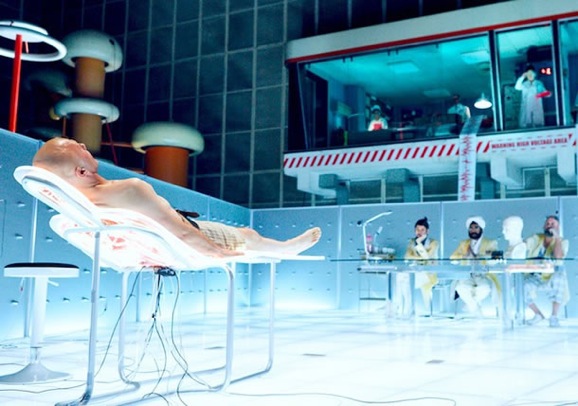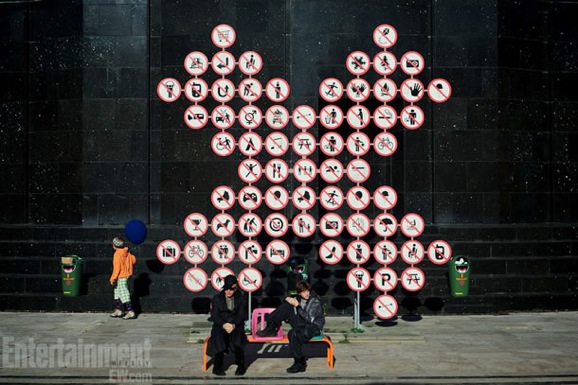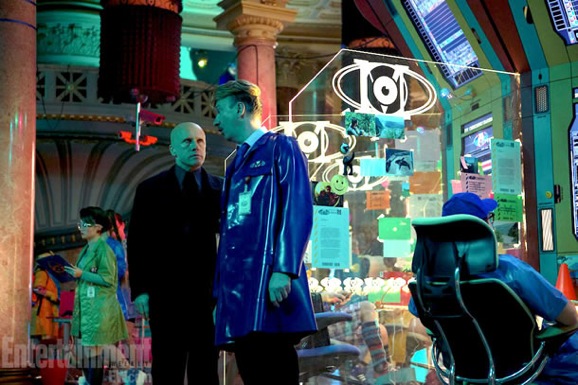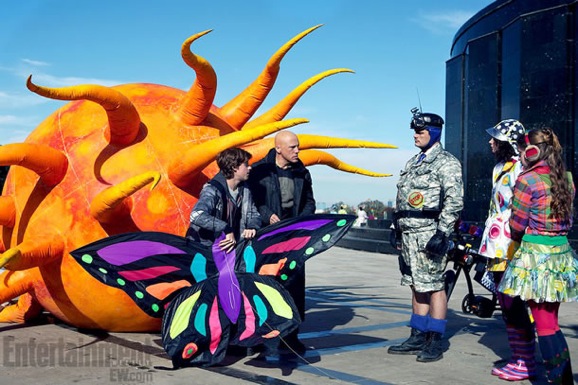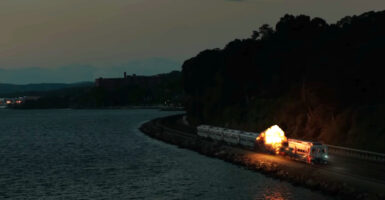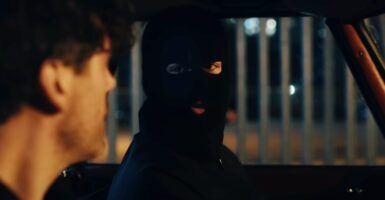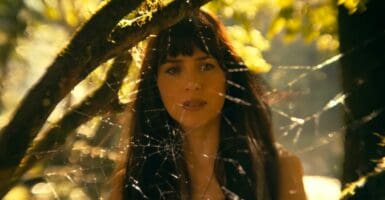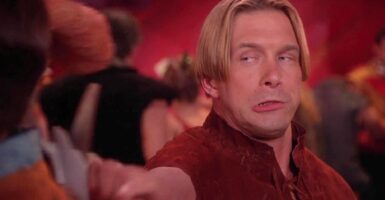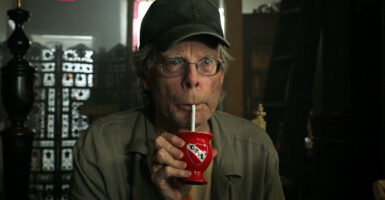The Zero Theorem Gets A New Clip, Four Photos, And A Detailed Breakdown
This article is more than 2 years old
Any time Terry Gilliam releases a film, that’s a day we mark on our calendars. When it happens to fall within the confines of science fiction, so much the better. His absurdist approach to storytelling is full of sharp jabs and subtle (sometimes not so subtle) digs at the hypocrisy he sees seemingly everywhere. A new clip, and a handful of photos give you a glimpse at the world of his latest film, The Zero Theorem.
Gilliam has called The Zero Theorem “Brazil for 2013, and, true to form, it appears his use of a futuristic, dystopian setting to make a point about present day life. This first clip, from EW, presents a world that looks like a Day-Glo Blade Runner explosion. Every single surface is plastered with corporate logos, or has been modified to blast commercials at your face 24-hours a day. You might, however ,want to check out the Occupy Wall Street sale, it sounds like there are going to be some intense bargains. Also, the Church of Batman the Redeemer sounds like a house of worship that I can get behind.
The video, as well as the images, are also full of Gilliam’s trademark strangeness and keen visual sense. Christoph Waltz plays Qohen Leth, a brilliant, but reclusive computer genius who lives in a burned out chapel. So full of existential angst that all of his hair has fallen out, he is hard at work on mysterious project to discover meaning, or lack thereof, of life. Frustrated at every turn by petty bureaucracy—which should be readily apparent from the picture that shows that everything is apparently banned—he falls in love and discovers the true power of desire.
Gilliam also breaks down the scene in great detail. Talking about the oppressive, omnipresent advertising, he says, “We just wanted it to be so aggressive and carnivorous almost.” The Church of Batman is also the maverick auteur’s nod to superhero’s recent domination of Hollywood, and his not so subtle way of drawing parallels between various cultural mythos and belief systems.
The film shot in Bucharest, and makes great use of the city’s unique architecture, especially in this particular scene. Gilliam says, “when we were looking for locations I found what I thought was a really interesting housing development from the ’30s, a very tall building with an alleyway in front of it, that just seemed like something I’d never seen.” Some things were added digitally, like the chapel itself, and some details.
Budget was a huge concern on the set of The Zero Theorem, which is why they filmed in Bucharest, as opposed to other, more expensive European cities. Gilliam estimates that the cost was less than a quarter if they had filmed in London. The finished film certainly doesn’t look like it faced any budgetary restraints, and the production squeezed all they could out of every last scent. There are big crowd scenes where all of the extras are meticulously outfitted. Gilliam says:
Carlo [costume designer Carlo Poggioli] had to find ways of dressing a couple hundred people in what should look like futuristic garb for no money and very quickly decided what we needed were some plastic tablecloths and plastic shower curtains to start with. We wanted a world that was full of color. The plastic shower curtains and tablecloths became overgarments over the clothes that sort of reflected the light — that you could also see through. They are hot, they don’t breathe, and you sweat a lot, but boy, do they look good on film.
The Zero Theorem is set to make the fall festival rounds with a world premiere scheduled at the Venice Film Festival, a North American debut at the Toronto International Film Festival, and an American unveiling at Fantastic Fest. There’s no word on when we may see a wider release, but hopefully that will be coming down the pipe before too long. In addition to Waltz, the film also stars Mélanie Thierry, Matt Damon, David Thewlis, Lucas Hedges, Ben Whishaw, and Tilda Swinton.
